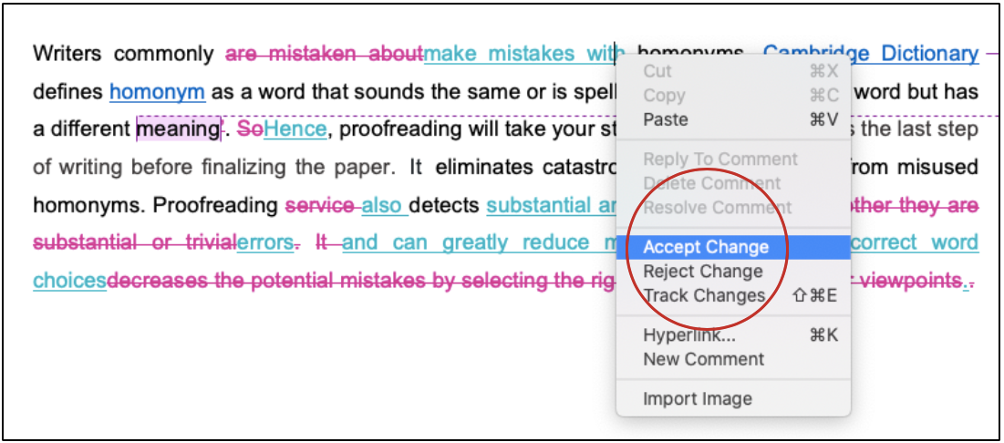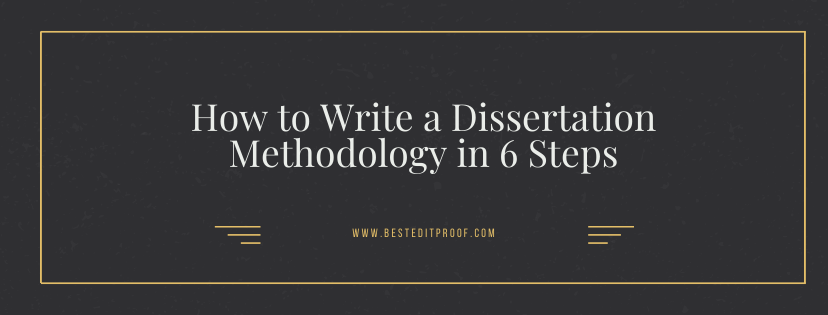Now, you have finished your thesis or dissertation. The next is writing a research paper based on your thesis and dissertation. A research paper is vital for academic writing, supplying in-depth analysis, comments, and in-depth discussion about your research.

Now, you have finished your thesis. The next is writing a research paper. A research paper is vital for academic writing, supplying in-depth analysis, comments, and in-depth discussion about your research.
Research papers are lengthier than academic essays, as they contain more detailed tasks devised to evaluate your writing skills, more importantly, your skills in academic research. Penning a research paper helps you illustrate a solid knowledge of your subject, interact with many sources, and contribute to the debate.
The entire writing process comprises many steps because you must understand your task before preparing your manuscript.
Successfully finishing a research paper implies that you have completed the specific tasks eloquently. However, you must thoroughly understand the task before beginning the process. The following tips might help you.
Peruse the task meticulously, and assess anything that might confuse the readers; thus, consulting with your professor may be wise.
Specify the objective, deadline, length specs, formatting, and submission scheme.
Note critical points, reread them and mark completed items off as you continue penning the work.
Please do not forget that your timeframe and word limit is critical. If you are realistic and plan, your research will be safe and sound to write and edit.
Many ways exist to form an idea for a research paper. They include discussing with a fellow student or professor, reviewing the literature, and checking with research priorities for a given year. If the paper is part of your thesis, the process is readier.
Nothing is wrong with gaining inspiration from other research. Most of the time, other studies’ discussion or recommendations sections are significant assets because they often contain ideas for other specific topics needing further examination.
It would be best if you searched for original and specific subjects. If you have a broad subject area, narrow it down, select an engaging topic meeting the criteria of your assignment, and find doable research help. Here is an example.
A study detailing the timeline of the Great Depression in the US might not be original or intriguing.
A study covering the experiences of unemployed people in the State of California and the calamities in their lives during the Great Depression would be particular and original enough.
It is recommended that you elaborate on relevant discussions on the topic and find a subject you can center your paper around. Utilizing many sources, such as journals, books, and reliable websites, helps ensure you do not miss anything necessary.
Please avoid researcher bias; that is, do not only confirm the ideas you theorize to be valid but search sources contrasting your point of view. The following tips might help.
Do you think people may have neglected some issues in your investigative sources?
How do you feel any hotly debated issues need to be addressed?
Would you present your unique stand on your subject?
Have you come across some recent developments confirming or refuting the extant research?
Exceedingly relevant is formulating your research question here. You may use expressions such as “I wish to know how/what/why…”
Editing and proofreading your research paper is critical. A professional editing and proofreading service with trained and experienced experts holding Ph.D. in their fields will edit your work in detail. The manuscript will be more legible and practical thanks to their vast experience.
The thesis statement is the statement depicting your primary argument and establishing the objective and scope of your paper. Suppose you began with a research question. In that case, the thesis statement should explicitly address it. It must also include what proof and cognitive thinking you have to uphold that address.
Extremely important is having a concise, argumentative, and lucid thesis statement. The bottom line is that it should support your argument in a nutshell; claim additional evidence or analysis; precisely articulate an intelligible point relating to every part of the paper.
Outlining covers the critical topics, discussions, and proofs and has sections called headings to depict what the paper resembles before you begin penning. A structured outline implies a more effective writing process. Thus, devote some time before you devise one.
The first drafts are far from perfect. Therefore, do not be a perfectionist. Please ensure that you keep the momentum going, order paragraphs logically, and express your ideas explicitly. The second draft will be much easier to write if you do that.
You do not have to begin with the introduction. Start with what seems the easiest for you. However, be careful not to delete chunks of significant texts. If you do not like something that you have written, do not eliminate it. Please open a new word document, and send it there. You never know whether you may need it later.
Your essential building blocks are the paragraphs. Thus, each should have a single notion to help uphold the overall argument or objective of the paper. Suppose you have organized them neatly. In that case, you can easily pen your second or final draft.
You must keep track of citations at this stage because plagiarism can occur even before you know it. When you use a source, ensure that you have jotted it down for future reference.
It would help if you addressed the questions of what, why, and how. After the reader has finished reading the introduction, they should have a sound understanding of what the paper address, why one should read it, and how the arguments are structured. The “What” part addresses the subject and background of the paper and presents the critical terms and concepts. However, the “why” part, the most challenging item in the introduction, offers short addresses about what is novel in this research and which critical issues are covered. Finally, the “how” part tells the reader what they anticipate from the rest of the paper. Therefore, keeping a chronological order helps.
Most writers struggle with organizing the information disclosed in the paper, making an outline indispensable. Nonetheless, the outline is not beyond a guide, and when penning a work, flexible order in presenting the information and arguments is acceptable. You can always check the compliance between your thesis statement and topic sentences. Ensure that your paragraphs cover varied issues. However, their approaches must be different should the two paragraphs argue something similar. Ensure smooth transitions between sentences, paragraphs, and sections to keep your text readable.
The conclusion section allows the readers to sense the finality of the work. Accentuate what you have done to support your thesis statement. Explain to the reader how you have addressed the issues presented in the introduction. You may also show the overall ramifications of the argument, explain what the paper has for future students of the subject, and suggest issues the paper’s argument advances but may not answer. You must avoid presenting new arguments, keeping the section unnecessarily long, and using stock phrases such as “in conclusion.”
Best Edit & Proof expert editors and proofreaders focus on offering papers with proper tone, content, and style of academic writing, and also provide an upscale editing and proofreading service for you. If you consider our pieces of advice, you will witness a notable increase in the chance for your research manuscript to be accepted by the publishers. We work together as an academic writing style guide by bestowing subject-area editing and proofreading around several categorized writing styles. With the group of our expert editors, you will always find us all set to help you identify the tone and style that your manuscript needs to get a nod from the publishers.

You can also avail of our assistance if you are looking for editors who can format your manuscript, or just check on the particular styles for the formatting task as per the guidelines provided to you, e.g., APA, MLA, or Chicago/Turabian styles. Best Edit & Proof editors and proofreaders provide all sorts of academic writing help, including editing and proofreading services, using our user-friendly website, and a streamlined ordering process.
Visit our order page if you want our subject-area editors or language experts to work on your manuscript to improve its tone and style and give it a perfect academic tone and style through proper editing and proofreading. The process of submitting a paper is very easy and quick. Click here to find out how it works.
Our pricing is based on the type of service you avail of here, be it editing or proofreading. We charge on the basis of the word count of your manuscript that you submit for editing and proofreading and the turnaround time it takes to get it done. If you want to get an instant price quote for your project, copy and paste your document or enter your word count into our pricing calculator.
Contact us to get support with academic editing and proofreading. We have a 24/7 active live chat mode to offer you direct support along with qualified editors to refine and furbish your manuscript.
Follow us on Twitter, LinkedIn, Facebook, Instagram, and Medium.
For more posts, click here.
This article explains how to write a research paper based on your thesis or dissertation. To give you an opportunity to practice proofreading, we have left a few spelling, punctuation, or grammatical errors in the text. See if you can spot them! If you spot the errors correctly, you will be entitled to a 10% discount.
How to Determine Variability in a Dataset
14.10.2023
How to Determine Central Tendency
19.02.2023
Population vs Sample | Sampling Methods for a Dissertation
14.01.2023
7 Issues to Avoid That may Dent the Quality of Thesis Writing
18.12.2022
How to Ensure the Quality of Academic Writing in a Thesis and Dissertation?
04.12.2022
How to Define Population and Sample in a Dissertation?
03.12.2022
How can You Establish Experimental Design in Your Dissertation?
12.11.2022
How Can You Decide on Tense Usage in Your Dissertation?
04.11.2022
How Can You Write an Abstract for Your Dissertation?
30.10.2022

Writing research articles might be tough. However, publishing articles in peer-reviewed journals is even tougher. Writing research articles for academic journals is as difficult as it is competitive. It’s not just about writing a research paper extensively. Arranging and condensing the content to appeal to the reviewers’ interests is also crucial. Skip on it, and there are high chances no editor will pay your article any attention, let alone forward it for publication. In this guide, you will learn how to heighten the probability of publishing your articles.
Continue Reading
A methodology section explains the entire process of data collection and analysis based on logic and philosophy. This section is an unavoidable part of a dissertation or a research paper. Considering errors in the methodology section enervates the entire dissertation. Here, we bring you a general guide on the steps to compose a flawless methodology section for a dissertation.
Continue Reading
Statistical analysis uses quantitative data and explores trends, patterns, and relationships. Thus, it is an indispensable instrument for researchers, states, firms, and many others. This article offers introductory knowledge on statistical analysis for students and researchers. After discussing descriptive and inferential statistics, it covers various research designs.
Continue Reading